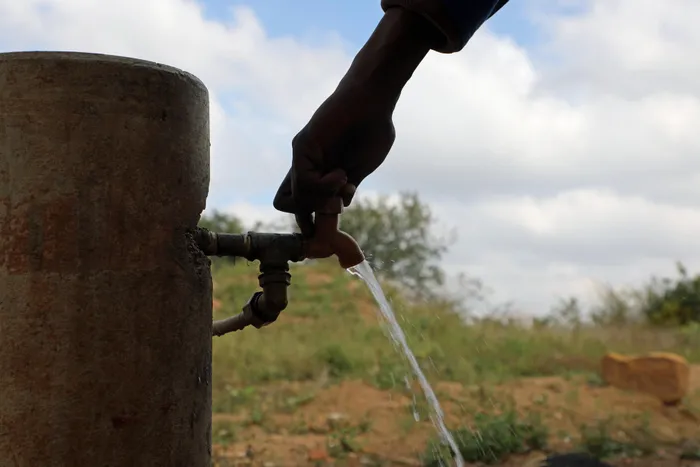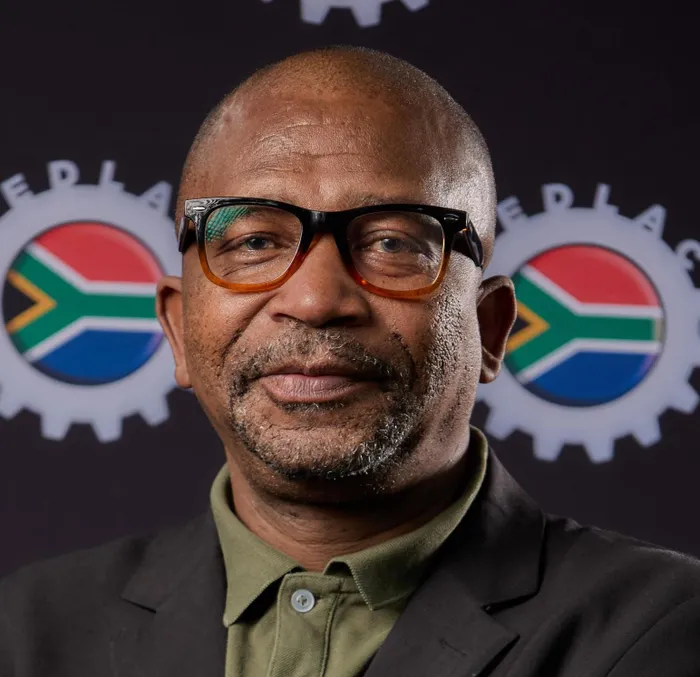Truth in climate action and the energy transition: countering climate denialism and misinformation
CLIMATE CHANGE

Recent research has shown a dramatic rise in disinformation related to the climate crisis, spreading at an alarming rate through social media, messaging apps, and generative AI.
Image: Timothy Bernard Independent Newspapers
As the risks of climate change become increasingly evident worldwide, the need for reliable and accurate information is more crucial than ever.
The World Economic Forum’s Global Risks Report (2024) identifies misinformation and disinformation on all topics as a short-term risk to human society amongst others the issue of climate change and the notion of the green economy revolution as such targeted topics.
Recent research has shown a dramatic rise in disinformation related to the climate crisis, spreading at an alarming rate through social media, messaging apps, and generative AI.
Evident in South Africa’s just transition journey, the spread of misinformation distorts public debate, weaken policy consensus and scientific consensus around climate change, its consequences, and causes, consequently obstructing the various actors’ ability to respond with agility and effectively to the crisis.
For example, by distorting the realities of decarbonisation—whether by downplaying potential or growth of renewable energy or by understating the health impacts of coal fired power stations—misinformation creates confusion.
The United Nations Secretary-General António Guterres stresses the urgency of combating “coordinated disinformation campaigns impeding global progress on climate change''. Hence the UN and UNESCO launched the Global Initiative for Information Integrity on Climate Change at the G20 Leaders’ Summit in Brazil in 2024 with the aim to promote information integrity on climate change, address disinformation, and enhance climate change awareness and action.
As the public conversation on climate change evolves, so does the sophistication and range of arguments used to downplay or mortgage the need for action.
These arguments have evolved from outright denial of the reality or human causation of climate change and ad hominem attacks on scientists and the scientific consensus.
These discourses accept the existence of climate change but justify inaction or inadequate efforts, for example by manipulating discussions on what actions should be taken, by whom and how fast, proponents of climate delay would argue for minimal action or action taken by others, and have found a new lease of life emboldened by others, and also the geo-political landscape changes.
They focus attention on the negative social effects of climate policies and raise doubt that mitigation is possible.
The aim is to manipulate discussions on what action should be taken, the speed of action taken, who bears responsibility and where costs and benefits should be allocated.
These strategies have become known as ‘climate delay’ discourses aimed at creating deadlock or a sense of intractable obstacles to taking action.
In the same way, these are sharpened through sophisticated public relations strategies like corporate greenwashing as basic as nature-rinsing imagery, green colour schemes to create a perception of environmental stewardship to vague statements with little detail or evidence on sustainability targets or past performance. Another concept has been socio-environmentalism, in particular cherry-picking small projects with a low impact compared to the companies’ revenue and environmental impact.
The oldest trick in the book has been companies professing to be part of the solution through non-transformative and miniscule initiatives such as recycling, water saving, reforestation and biofuels or when agribusinesses narrates their contribution and role in feeding the world, while fossil fuel companies position themselves as essential to growing energy demand worldwide, as well as key investors the clean energy transition.
The media plays a pivotal role in shaping public understanding, policy debates, and stakeholder actions around both climate change and the broader concept of a just transition. Timely, accurate reporting on these events—and on South Africa’s innovative pilot projects—can galvanise public support for policies that buffer communities against future shocks, while creating new economic opportunities.
To move the needle on public attitudes, journalists must go beyond simply reporting data. We also need various perspectives that unpack the intersection of climate justice with race, gender, and class. Investigative reporting can expose the hidden costs of continued fossil fuel economy dependency—be it public-health burdens or environmental degradation.
Last week we celebrated World Press Freedom Day with a focus on the profound influence of Artificial Intelligence (AI) on journalism and media under the theme: Reporting in the Brave New World – The Impact of Artificial Intelligence on Press Freedom and the Media.
To commemorate World Press Freedom Day, we ask our media to make a pledge to defend the reality as fiercely as they defend free speech and to resist the corporate capture and weaponisation of the business and financial journalism against climate action.
In a brave new way, this pledge must envision an information ecosystem that enables the media to deliver choice and freedom for all, in which people everywhere can express themselves and make informed decisions about the future they want – This transfer of power from the media to the people through improved climate reporting will empower workers and communities, and thus handing them greater control and share of voice in the discourse- which will be the fourth estate’s greatest contribution towards climate action.

Blessing Manale.
Image: Supplied.
Blessing Manale, Executive Manager: Consensus Building, Communications & Outreach.
Visit: www.businessreport.co.za
BUSINESS REPORT